
The government’s newly proposed Tobacco and Vape Bill aims to reduce youth access to vaping products, and while vape suppliers welcome some of the new measures, they have concerns about the potential impact on vaping’s role as a leading quit aid for adult smokers.
Marcus Saxton, group chief executive of vape online retailer Totally Wicked and chairman of the Independent British Vape Trade Association (IBVTA), welcomed certain parts of the Bill but raised concerns over “regulatory overkill” that could hamper the future of vaping as a smoking cessation.
Saxton highlighted the IBVTA’s commitment to work positively and progressively with the government to ensure that vaping becomes less accessible and desirable to children, and to adults that would not otherwise be smoking.
“Excessive restrictions on the types of products that our members can provide may reduce the products’ appeal. Even worse, they may contribute to continued misperceptions about the harm of vaping relative to tobacco smoking. Specifically, the role of flavours in supporting adult smokers to a successful quit attempt is accepted and understood by most public health stakeholders, and we believe to have been fundamental to the success of vaping in reducing smoking rates. Therefore, any reference to potential powers to restrict flavours is very worrying, as it threatens the government’s own goal of the UK becoming smoke free by 2030,” Saxton continued.
Responding to the government’s announcement of the introduction of a licensing scheme for vaping retailers, Evapo chief executive Andrej Kuttruf, expressed cautious optimism.
While acknowledging the importance of introducing a retailer licensing scheme, Kuttruf shared concerns about the need for a larger fine for rogue traders who continue to sell products to people underage.
“For years, Evapo has called for a licensing scheme as a key way to support responsible retailers so today is a real victory,” said Kuttruf. “While we stridently agree with the goals of protecting young people and ensuring quality standards, it’s essential that a better deterrent is put in place - a fixed penalty notice of £200 is simply not good enough.”
The vape retailer suggested that the vaping licensing scheme should take a page out of the book of the alcohol licensing scheme, where non-compliance fines can be much higher and there are far fewer rogue traders.
Meanwhile, Eve Peters, director of government affairs for Elf Bar in the UK, said the Bill demonstrates that the government has engaged and listened to many in the sector.
“Whilst we recognise and support that action must be taken to address youth vaping, it’s important to acknowledge that vaping products, including single-use, are a key smoking cessation aid, with millions of adult smokers having quit as a result,” Peters said. “An impact assessment by Defra highlights that three in ten current vapers will either revert or relapse to smoking tobacco as a consequence of the ban, with officials cautioning that a rise in cigarette use could lead to significant health ‘disbenefits’ – posing serious health risks and endangering the Government’s smokefree targets.”
Elf Bar has urged the government to evaluate the evidence before any further restrictions on vaping are considered, particularly concerning flavours “which are vitally important to adult smokers”.
The proposed vape licensing scheme will tackle rogue traders, said We Vape. While the campaign group welcomed the licensing scheme, it said the government has yet to state whether the funding will go directly to Trading Standards so they can enforce the law.
As part of the Tobacco and Vapes Bill introduced in Parliament yesterday, a £200 on the spot fine was also proposed for retailers found to be selling tobacco, vape and nicotine products to people underage.
“The spot fines for selling to children being capped at £200 is frankly a pathetic amount, considering the money that can be made from the black market. Penalties should begin at £1000, rising to £10,000 for repeat offenders before they are shut down,” said Mark Oates, founder of We Vape.
“Banning flavours also implies that they are as harmful as smoking, when we know they help people transition from cigarettes. In addition, the failure to include pre-market testing of vapes before they reach the shelves is a missed opportunity that would enhance quality standards,” Oates added.
















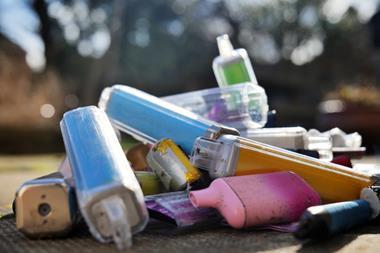
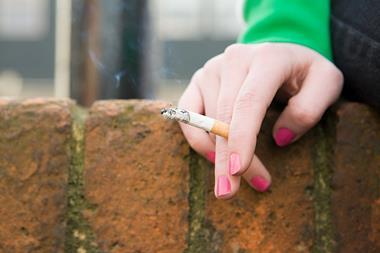
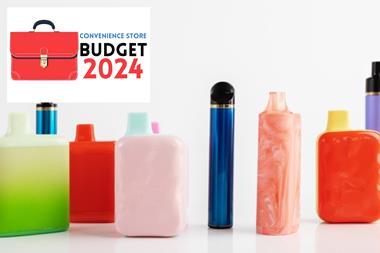
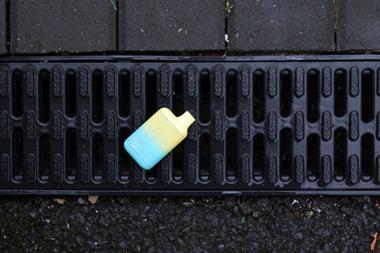

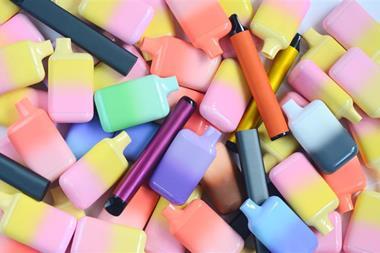
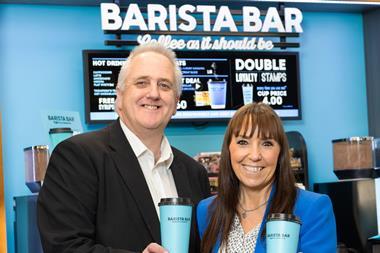





No comments yet